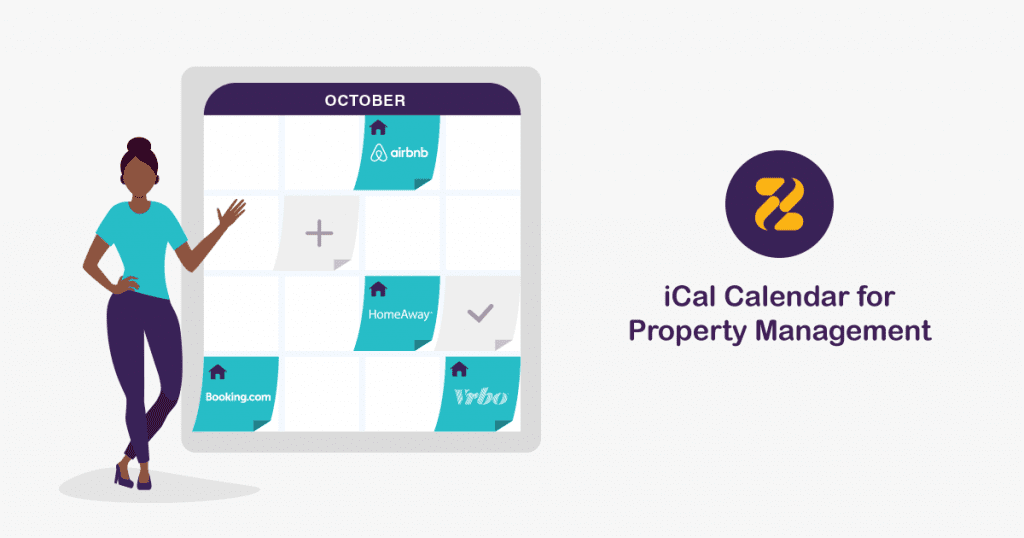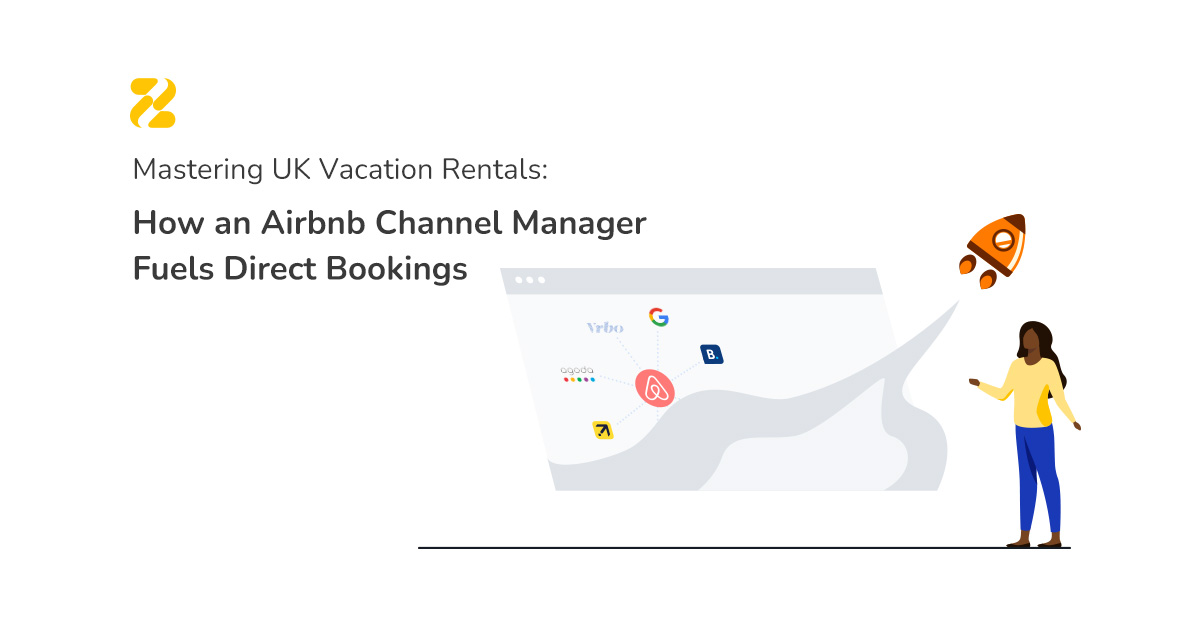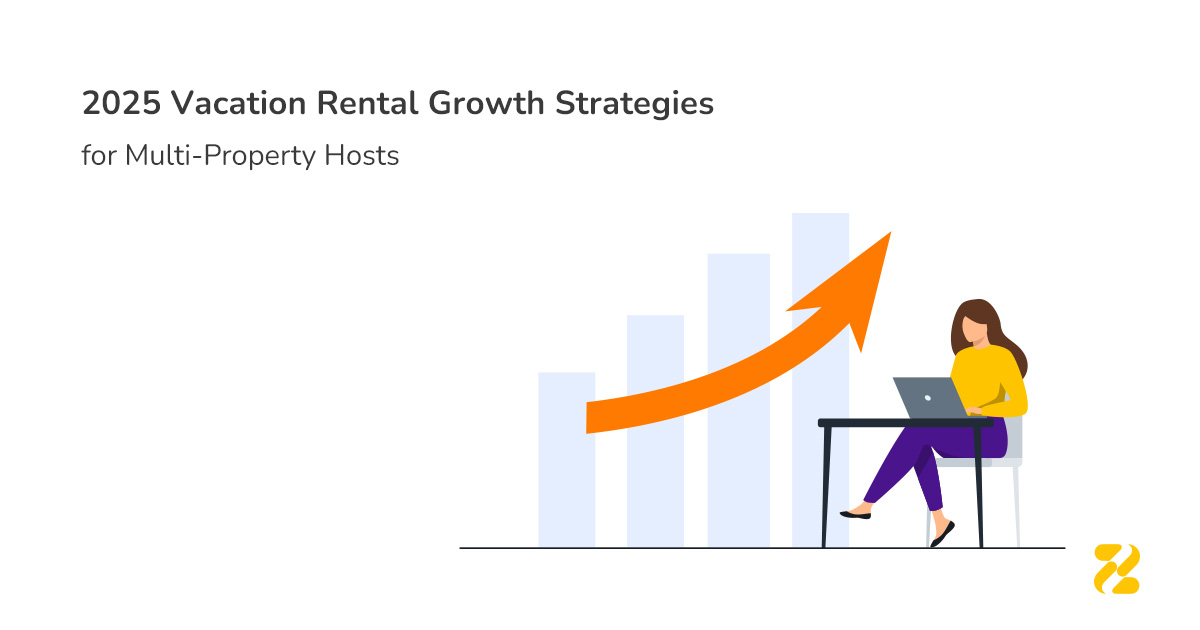Using several channels increases the visibility of your vacation rental and serviced apartments and hence bookings; however, keeping multiple calendars up-to-date manually is painful for busy property managers. All you need is a channel manager which is able to update your calendar automatically and ease your workload, cutting human error caused during manual data entry on multiple listing sites and saving your most valuable commodity: time! Channel managers come in different shapes and forms. Some channel managers and online booking websites use iCal calendar for property management, while others choose other integrations to sync and store reservation information. Many of the vacation rental websites use iCal because it is free even at the cost of more limited capabilities.
Table of Contents
What is iCal?
iCal is a standard format (with .ics filename extension) for exchanging calendar information between users and computers. The calendars found on smartphones, computers and web applications such as Microsoft Office 365, Apple Calendar, Google Calendar, and Yahoo Calendar use iCalendar for synchronisation. It is an easy-to-use calendar that helps you create events and keep track of your tasks, meetings, appointments and deadlines, and organises your work, as well as your family and personal life. iCal is also used for transferring calendar data in managing vacation rental reservation calendars.
Calendars can be shared between websites. As there is no standard format for blocking days, different software and booking sites use different calendar systems and can’t detect other software’s bookings. If calendars fail to sync with booking websites, overbookings might happen. When a room is booked on a particular booking website, but is still available on other platforms, a different guest can book that room for the same night through other platforms, and a double-booking will happen. Channels using iCal integration are exposed to the risk of double bookings and cancelled guest reservations which are the two key ingredients for failure.
Here are the main reasons why using iCal calendar for property management is not the best idea.
1. iCal Is So Buggy
iCal’s flaws and unpredictability has turned it into an unreliable calendar for property management. Many iCal users might have experienced numerous syncing errors when the calendar on their devices or different booking sites do not sync with each other, or when double-bookings happen as a result of broken iCals and corrupt iCal URLs which make a real mess.
2. iCal Collects Limited Data
iCal integrations are not designed for data collection, and reservation dates are the only piece of information iCals can transfer to other calendars. iCal is not able to save the details of the exported reservation, or even the guest or the listing information such as guest names, contact information, unit number, and property name. As a result, building a potential customer base and reaching out to your previous guests are not possible. Moreover, iCals are not able to synchronise rates between different PMSes and listing platforms, so channel managers still need to change their rates manually on the target site each time they change their rates.
3. iCal Doesn’t Sync in Real Time
When a booking is made on a vacation rental calendar, it will be automatically updated. Some bookings are also added to the calendar manually by the property managers for example, through phone or email. A channel manager’s job is then to automatically add these bookings to every single rental website it is synced with and block the requested dates, and make them unavailable for other guests to book. Different websites update their calendars with different frequencies, and there are a few hours between iCal pulls by various channels. Most OTAs do not pull iCal updates more than a few times a day, which increases the risk of receiving a double booking.
4. iCal Can’t Integrate with Third Party Apps
Short term property managers usually manage multiple properties on multiple channels, and they need to keep track of their reservations. iCal doesn’t allow you to integrate your calendar with any third party services like Google Analytics or Google Tag Manager, which can help you monitor your performance and consequently grow your business.
Zeevou’s Channel Manager
iCal is a great tool for your daily personal life, but it’s not a reliable calendar for property management. Therefore, you must look for professional alternatives tailored for your vacation rental business.
Hospitality software communicate with each other through API integrations which allow both rates and availability to be sent to channels in real time. API integrations take just a few minutes to get updated and push out your rates as soon as you make a change and increase prices differently by channel in order to cover their commission and ensure your rate parity.
Zeevou’s powerful, real-time, 2-way API integration with over 200 channels, and its calendar software and booking engine pull live rates and availability, both from those entered manually, or sent through one of its dynamic pricing integrations in real time. As soon as a booking is made through one of the channels Zeevou is linked to, it immediately updates all other channels and makes the unit no longer bookable on any other sites that you have listed your property. This way it reduces the chances of overbookings to virtually zero.
Moreover, you can integrate Zeevou’s booking engine with Google Analytics in order to track traffic and demographics of your listing, and also with the Google Tag Manager which allows to track the flow through the website and the bookings that you receive to invest in Google Ad campaigns or personalise your marketing strategies.
Every booking made on listing sites or OTAs that Zeevou links to, flows directly into Zeevou and triggers an email to the guests to initiate Zeevou’s 5-Step Online Check-In Process, through which Zeevou requires the guests to add their first names, last names, and real email addresses to place a booking. This enables the hosts to collect the data of their potential guests for marketing purposes and gives the guests the feeling of a hassle-free booking. Follow this link to read more about all the steps.





